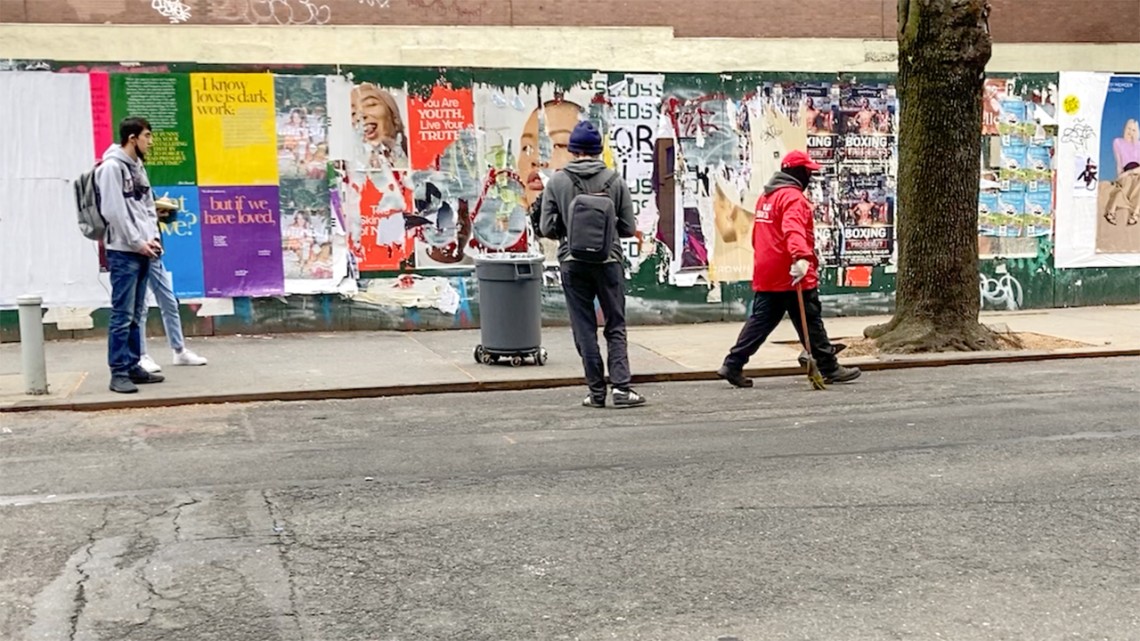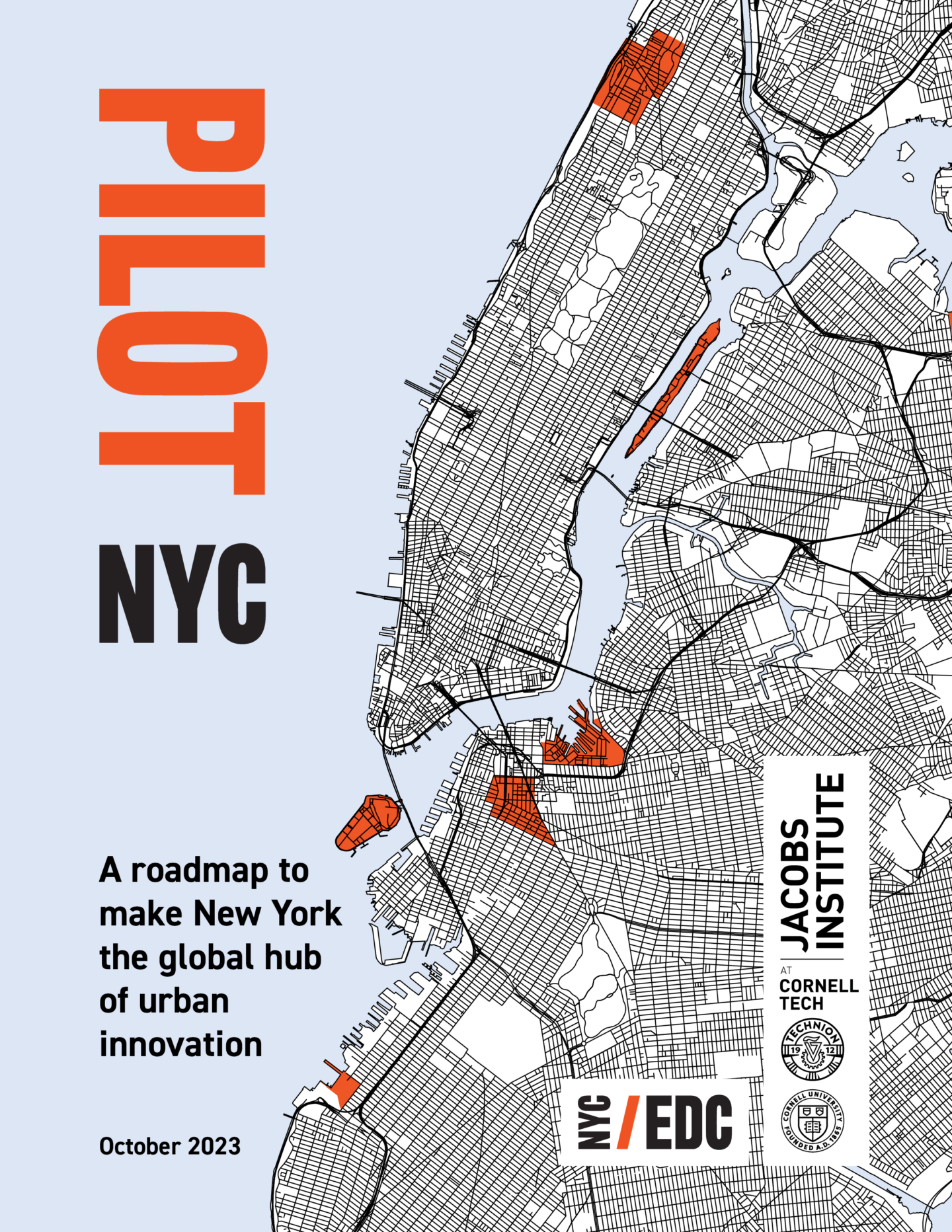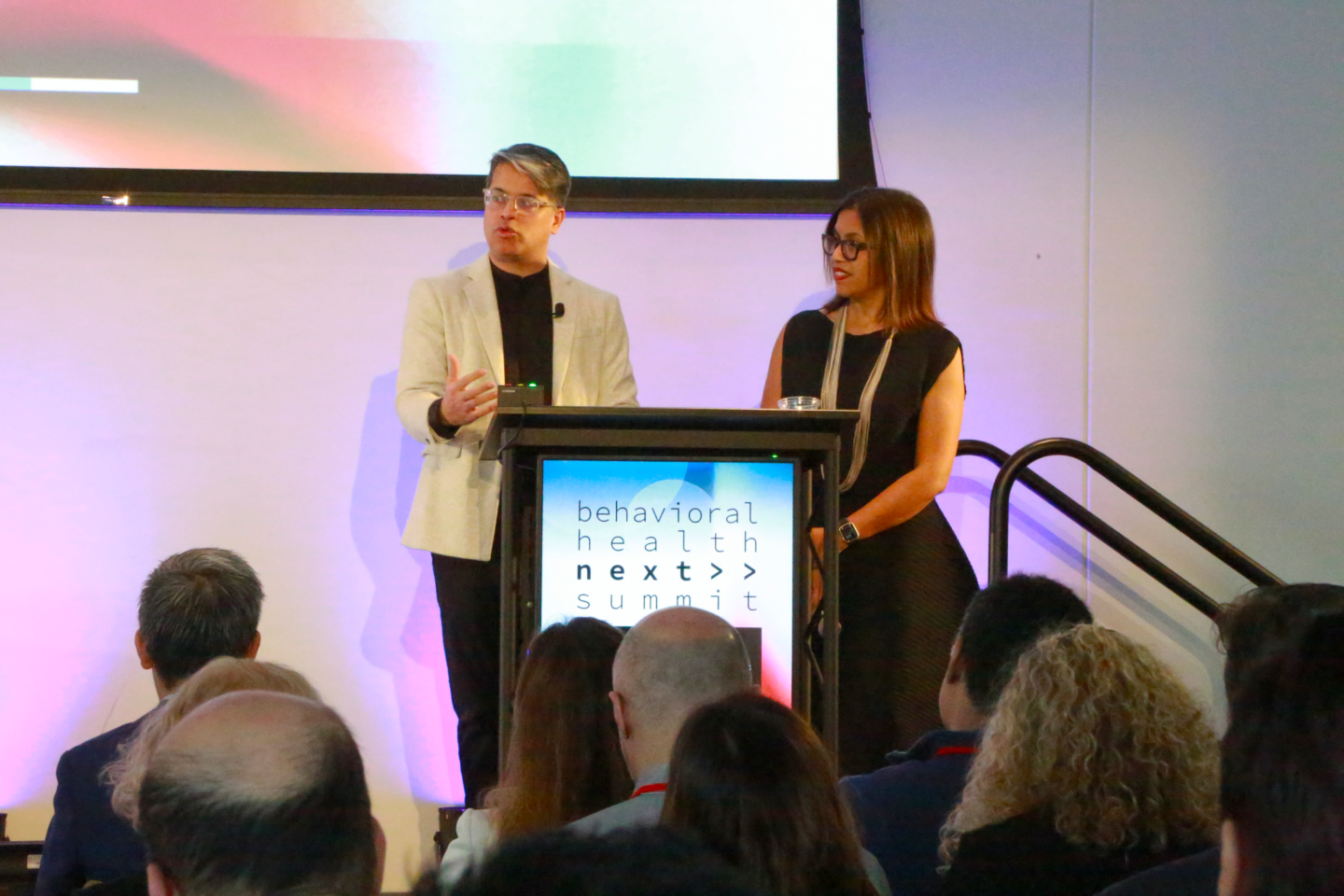“Horizon Scan” forecasts urban technology trends over the next decade
250+ breakthroughs, innovations, and applications outlined in interactive resource
Today a team from Cornell Tech released the “Horizon Scan,” which synthesizes more than 250 urban tech breakthroughs, innovations, and applications, as well as the field’s potential and risks over the next decade. The Horizon Scan is the most comprehensive survey to date of the emerging field of urban tech covering infrastructure, resiliency, machine learning, and equity, among other issues. Here is the full report.
“This research project is a testament to our belief that the future of technology is the future of cities,” said Michael Samuelian, Founding Director of the Jacobs Urban Tech Hub at Cornell Tech. “By focusing our gaze on the future, we can make better-informed decisions on the increasing challenges that today’s cities face every day.”
The project was led by Dr. Anthony Townsend, who is the inaugural Urbanist in Residence at the Jacobs Urban Tech Hub at Cornell Tech. Townsend, the author of two books and numerous technology forecasts on topics including smart cities, automated mobility, and last-mile delivery, sees the report as a founding document for the field.
“The Horizon Scan is meant to create a conversation across the many areas that are a part of urban tech,” said Townsend. “The report describes the innovations that the field could produce in the coming decade. But it also lays out the ‘technical debt’ that’s already on the books due to hasty decisions about sensing, AI, and tech governance. The hope is that this roadmap helps the field come together to make better decisions about applied research going forward.”
The Cornell Tech report covers a variety of technological advances—from autonomous vehicles and facial recognition to carbon sinks and urban sensing—that are poised to transform our cities over the next ten years. The years-long research effort produced six narrative forecasts that summarize the most important shifts likely to shape the future of cities nationally and globally.
- Supercharged Infrastructure: Urban systems converge into a deep, actionable web
The smart cities movement aims to equip buildings and infrastructure with digital sensing, and engineers have deployed these technologies to control individual systems. But smart buildings and infrastructure aren’t yet linked up at an urban city scale.
UPSHOT: Over the next decade, the convergence of physical and digital infrastructure will speed up, enabling us to track the flow of energy, water, and waste in real-time. Cities will play a catalytic role in orchestrating this process. But the bigger challenge will be harnessing the power of this vast, deep, actionable web. - Wild & Well: Life science transforms urban systems
The lockdowns of 2020 revealed a powerful desire to reconnect with nature in urban public spaces. At the same time, advances in surveying the natural world are making it newly possible to assess the way environmental health is linked to our own at the microscopic scale.
UPSHOT: Researchers are mapping microbiomes within urban transit systems and sampling sewage to detect COVID-19 outbreaks. Municipal governments are wiring up waterways to calculate the vitality of ecosystems. Arrays of citizen-operated sensors are collecting climate data. - Resilient Corridors: Scaling sustainable building technology
Over the next decade, many cities will launch climate “moonshots” to cut carbon emissions and weather the shocks of climate change. To maximize impact, leaders should concentrate political and financial capital alongside concentrations of networked infrastructure, where technology will amplify the advantages of density.
UPSHOT: Streets will take on new roles as cities seek to extract maximum value from the public realm. Remote work, learning, and healthcare will drive changes in the kinds of buildings we need; novel materials and automated construction techniques will transform how we build them. - Dark Plans: Urban chaos gives way to an algorithmic hum
Artificial neural networks that power machine learning are creating tremendous value in our cities by revealing order in the movements of people, goods, resources, and information. They can help us organize our urban world with a predictive capability unrivaled in human history.
UPSHOT: There’s no telling what society will gain and which individual freedoms we will lose to create a more connected, orderly system. - New Screen Deal: Inclusive urban innovations challenge surveillance capitalism
Equity goals are becoming as important as the efficiency aspirations that have long driven smart-city agendas. As tech becomes the vehicle and catalyst for transforming society’s most prized and vital institutions, a new sociotechnical compact is emerging.
UPSHOT: Networks that empower the disempowered should be fostered, while those that extend the reach and consolidate the control of the most powerful must be checked. - Urban Innovation Industrializes: Big business cracks the code of the city
The tension between proprietary and open-source tech has been a constant in the smart cities movement, creating suspicion of corporate smart-city solutions and blocking implementation of large-scale private digital projects. But in the decade ahead, big tech will crack the code of the city.
UPSHOT: As a new urban innovation industry takes shape, big financial and political interests will move in. Much of the decisive action will play out within the high-stakes context of Sino-American geopolitical jockeying.
About Cornell Tech
Cornell Tech is Cornell University’s groundbreaking campus for technology research and education on Roosevelt Island in New York City. Our faculty, students, and industry partners work together in an ultra-collaborative environment, pushing inquiry further and developing meaningful technologies for a digital society. Founded in partnership with the Technion-Israel Institute of Technology and the City of New York, Cornell Tech achieves global reach and local impact, extending Cornell University’s long history of leading innovation in computer science and engineering.
About Jacobs Technion-Cornell Institute
The Jacobs Institute fosters radical experimentation at the intersection of research, education, and entrepreneurship. Established jointly by Cornell University and the Technion-Israel Institute of Technology, our mission is to transform key industries through technological innovation, deep-tech startups, and uniquely skilled talent.
The Jacobs Institute degree programs equip students to take on complex, real-world challenges through interdisciplinary, domain-focused work. Recent PhD graduates work through the Jacobs Runway Startup Postdoctoral Program to apply their knowledge as they lead teams and build companies in industries critical to the 21st century.
About the Urban Tech Hub
The Urban Tech Hub of the Jacobs Technion-Cornell Institute at Cornell Tech is a center of activity that generates applied research, fosters an expanding tech ecosystem, and cultivates the next generation of leaders in urban technology. Our goal is to shape the field of urban tech with a human-centered approach that focuses first on the people that use the technology. We advance technology research and education to build a better world by increasing access and opportunity within the tech sector.
The Jacobs Urban Tech Hub leverages the resources of Cornell University (and the Technion-Israel Institute of Technology) to bring together researchers, engineers, scientists, urban tech companies, government agencies, and community organizations to address the challenges facing cities today.
Media Highlights
Tech Policy Press
Content Moderation, Encryption, and the LawRELATED STORIES




